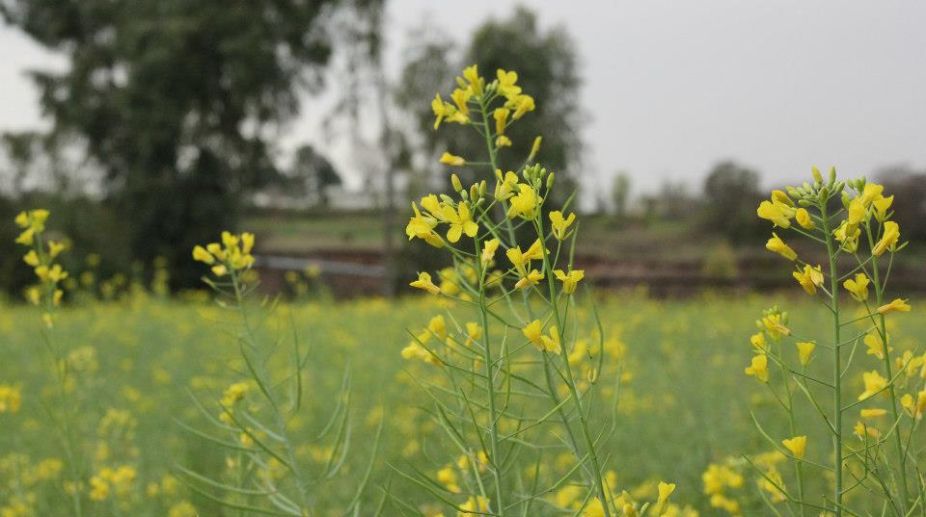The National Academy of Agricultural Sciences (NAAS) has urged the government to allow commercial use of Dhara Mustard Hybrid-11 (DMH-11), a Genetically Modified (GM) Mustard variety, from this year and to support scientists to develop such hybrids in future.
The Genetic Engineering Appraisal Committee (GEAC), which is a regulator under the Environment Ministry, had last month recommended commercial use of the GM Mustard variety, DMH-11.
Advertisement
The Ministry is now supposed to take a final call.
An agriculture think-tank of 650 scientists, the NAAS analyses various aspects of agriculture and food system transformation and suggests solutions for sustainable agriculture development. It adopted a resolution on commercialisation of DMH-11 in its annual general meeting body meeting on Monday.
"The central and state governments should immediately endorse the recommendations of GEAC so that the coming growing season can be fully utilised for the multiplication of parental and production of hybrid seed," reads the resolution.
DMH-11 is developed by Deepak Pental, a geneticist at Delhi University.
The resolution also says "biotech product must not be denied to the farmers, who should have options to make informed choices, and empowered to become globally competitive in the fast changing world".
"We have apprised ourselves of all conducted studies and unequivocally state that it is as safe as the non-GE mustard and this technology will help farmers and the country in improving its edible oils economy," NAAS scientists say in the resolution.
Critics of GM technology have opposed commercial use of GM Mustard saying the technology will have adverse impact on people's health and farmers' livelihood.
The NAAS said it is "deeply concerned about unscientific and ill-motivated attacks on the use of GM mustard hybrid for improving the edible oil economy in India".
India meets 60 per cent of its demand for edible oils through imports.
The NAAS said scientists have toiled hard over the last 20 years to develop promising biotech mustard varieties and the DMH-11 hybrid was rigorously tested for bio-safety as per the guidelines and procedures.
It appealed to the government to "proactively support the agriculture scientists to pursue frontier sciences and to take new developments in science and technology to the farmers".











